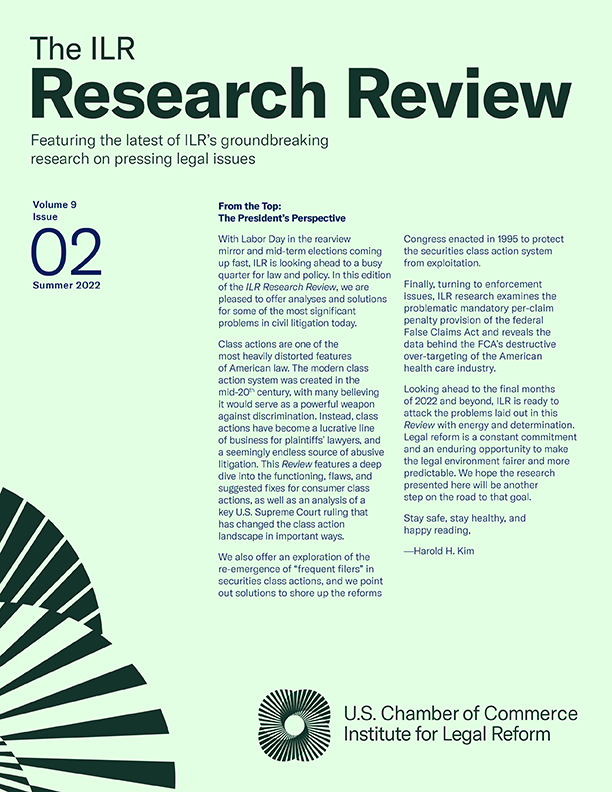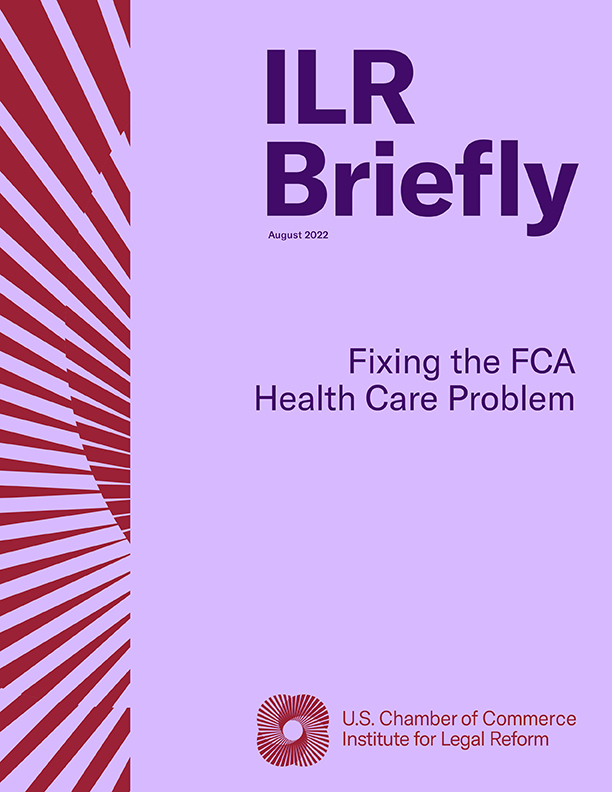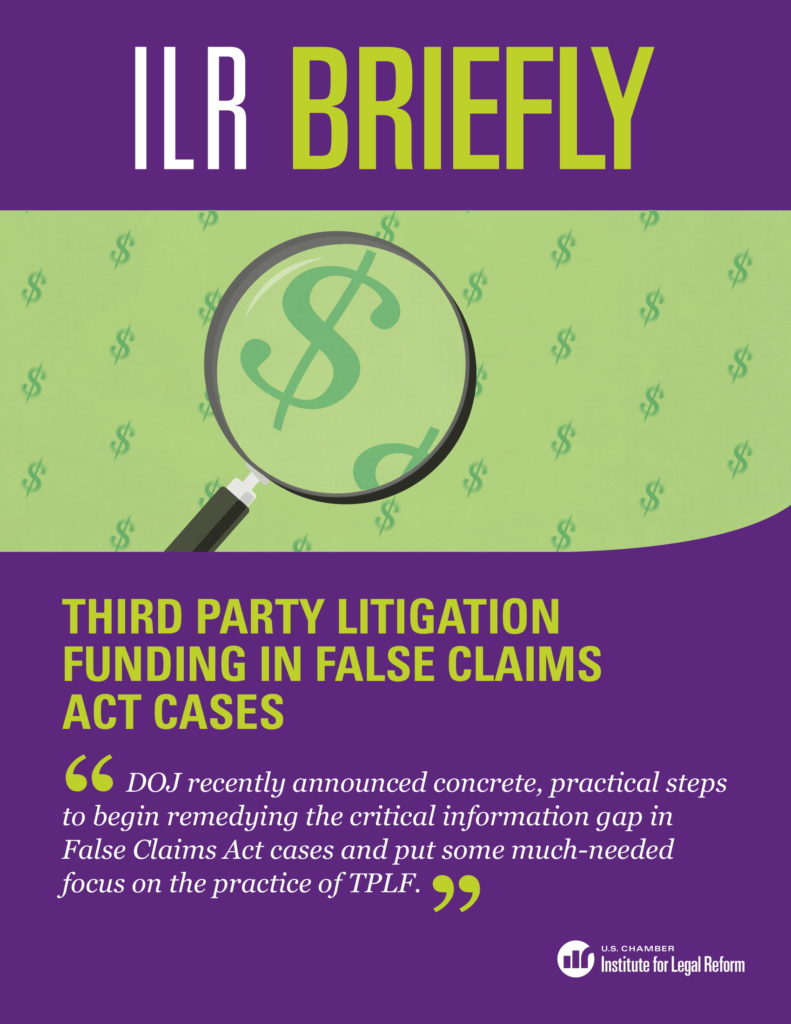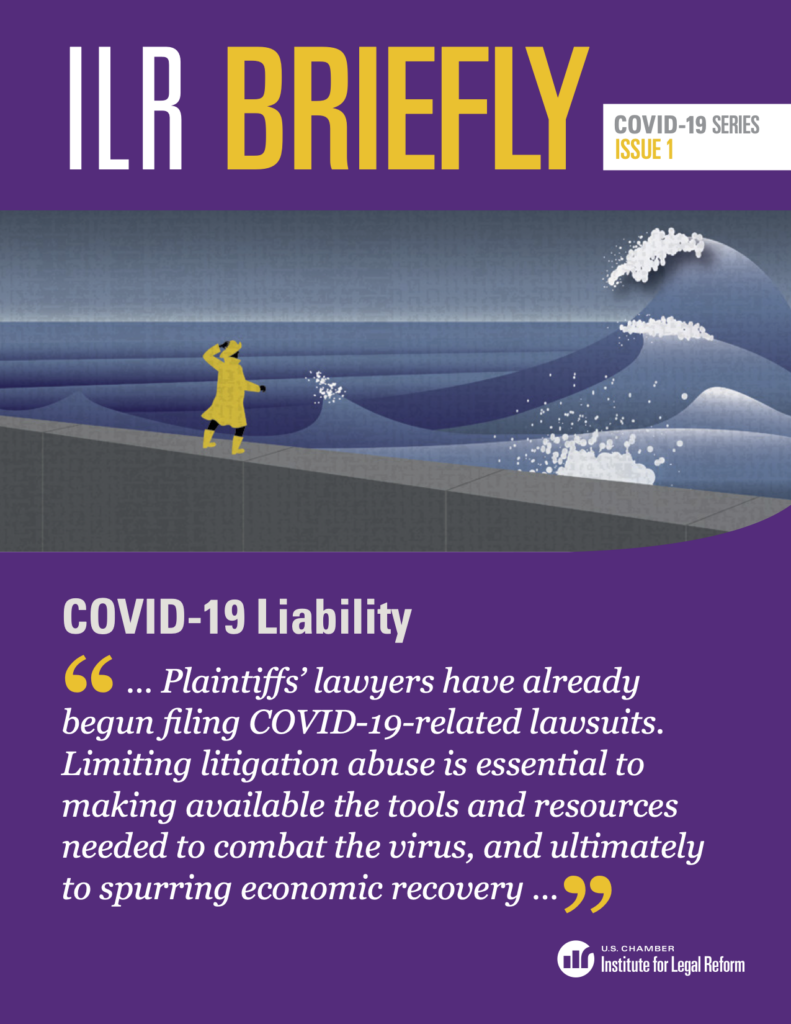It’s time to overhaul the False Claims Act (FCA). The FCA is the government’s most important tool to uncover and punish fraud against the United States. The law imposes treble damages and penalties, and is enforced largely by whistleblowers suing in the name of the government. As a result, litigation and liability under the FCA have skyrocketed.
Although the law is essential to protect the government, it has proven ineffective at preventing fraud. The government estimates that it loses approximately $72 billion to fraud, abuse, and improper payments each year, yet the FCA has recovered only $35 billion since 1987—a tiny fraction of the money lost over that period. Based on these figures alone, the FCA is not getting the job done or working as intended
A recently released report, Fixing the False Claims Act: The Case for Compliance-Focused Reforms, isolates the problems with the FCA, including its overreliance on whistleblower litigation and its failure to encourage better corporate compliance. The report advocates a series of reforms to build on the FCA’s strengths—including the important role that whistleblowers play in detecting fraud—and improve its enforcement, while radically improving its role in preventing fraud. The reforms fall into three categories.
- First, this report explains how rigorous compliance programs can reduce the incidence of fraud, describes a model for creating incentives for widespread adoption of such programs, and proposes that independent entities should determine whether a company’s practices meet general and industry-specific state-of-the-art “gold standards” for compliance. Companies that obtain and maintain this “gold standard” certification would gain the benefit of four proposed FCA reforms, including a reduction of the FCA damages multiplier, a bar on qui tam actions after corporate self-disclosures, a bar on whistleblower actions based on information that was not previously internally reported to the company, and exemption from mandatory or permissive exclusion or debarment for the corporation and its executives.
- Second, the report describes additional reforms that would address inefficiencies in the way the statute operates and is enforced. Two reforms address the current irrational damages and penalty structure of the FCA, by requiring more precise measurements of the government’s actual loss, and by precluding awards of penalties that are unrelated to the government’s damages. Other reforms address whistleblower enforcement, by proposing a reduction in the whistleblower’s share of the government’s recovery to dampen the current excessive incentive structure, and a bar on whistleblower actions brought by former or present government employees. Another reform would require the government to engage in better document preservation efforts when it investigates companies under the FCA. Finally, the report advocates a change to the statute that would preclude imposition of liability for the judicially-created concept of “implied false certifications,” in accordance with certain recent judicial decisions.
- Third, the report proposes a reform to the use of Civil Investigative Demands (CIDs) by the DOJ, which are investigative tools that impose extreme costs and burdens on companies and individuals. The report proposes that the DOJ should adopt internal policy guidelines to ensure that CIDs are issued only when necessary to a fraud investigation and when less burdensome alternatives are unavailable.
The goal of the proposed reforms is for corporations to become, in essence, the front line of defense against fraudulent conduct by self-policing and providing information to the government if employees do engage in misconduct. While whistleblowers will still be a valuable second line of defense for the government, their importance would decrease over time as corporate compliance increases. The end result would be less fraud against the government, and more efficient enforcement.
View PDF


